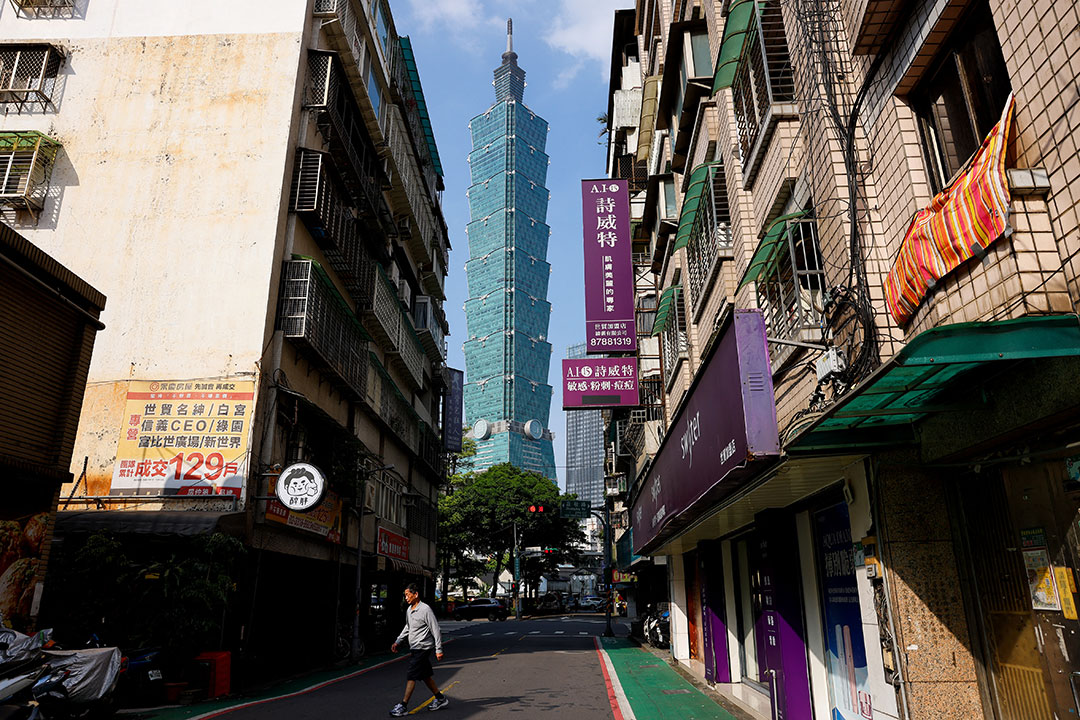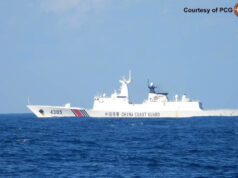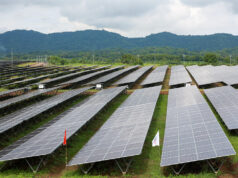Senator calls for review of Philippines’ One China Policy amid SCS tensions

By Chloe Mari A. Hufana, Reporter
A LAWMAKER on Thursday called for the review of the Philippines’ adherence to the One China Policy, in which Manila denounces the sovereign claims of Taiwan and recognizes Beijing’s sole government, as tensions escalate in the South China Sea (SCS).
In a senate hearing, Senator Erwin T. Tulfo told Foreign Affairs Secretary Maria Theresa P. Lazaro that the government should reevaluate its stance on the One China Policy amid Beijing’s threatening presence in Philippine waters.
“While we respect what they want, while we don’t want to interfere in the affairs between China and Taiwan, but what about our position?” Mr. Tulfo said. “They can come in and out and we don’t have a say.”
President Ferdinand R. Marcos, Jr., earlier this month said Manila will have to meddle should a war erupt between Beijing and Taipei, which is home to over 160,000 Filipinos.
Beijing accused Mr. Marcos of playing with fire with this pronouncement, but the Philippine President noted Manila will be dragged kicking and screaming into the possible Taiwan war.
Ms. Lazaro however maintained the Philippines’ stance on the One China Policy and reaffirmed the Department of Foreign Affairs’ (DFA) commitment as its “guardian and steward.”
“We do not recognize Taiwan as a sovereign state. We leave it to the Chinese people to resolve cross straits matters,” she told the Committee on Foreign Relations.
“Conflict will have an impact on geographically proximate territories. And the President did not deviate from our principle of non-interference, a principle of the joint communique.”
Under the One China Policy, countries acknowledged that Beijing is the sole Chinese government, denouncing Taipei’s claims as a sovereign nation.
While most countries in the world adopt this, the Philippines has unofficial diplomatic relations with Taiwan through the Manila Economic and Cultural Office (MECO) and the Taipei Economic and Cultural Office.
Beijing considers Taipei, Manila’s closest neighbor to the north, as a part of China. It earlier threatened to seize the island by force.
Manila and Beijing have been in a geopolitical deadlock in one of the world’s most crucial waterway, where about a third of the global trading industry passes through annually.
Despite an arbitration win in 2016, Beijing continues to harass Filipino vessels.
“We really have to think of our position. The United States is observing One China Policy, but they are not being bullied, we are, and come to think of it, that (China) is our neighbor,” Mr. Tulfo added in mixed English and Filipino.
The Chinese Embassy in Manila did not immediately reply to a Viber message seeking comment.
CONTINGENCY PLAN
Ms. Lazaro also said she is open to discussions with China about possible ways to ensure the safety of Filipinos living in Taiwan, amid rising tensions across the Taiwan Strait.
The Foreign Affairs Secretary was asked whether the Philippines could seek Beijing’s help in evacuating close to 200,000 Filipinos living in Taiwan if conflict breaks out.
“We can do that,” she replied, adding, “It’s about time to also come up with these discussions.”
Ms. Lazaro and other officials told senators that contingency measures are already in place to assist and evacuate Filipinos in the event of a war.
“We have been talking since early this year about a contingency plan, with security agencies,” Ms. Lazaro said.
Over the past five years, Taiwan has come under increasing military and political pressure from China, which views the island as its “sacred” territory. Beijing has never renounced the use of force to bring Taiwan under its control.
Taiwan strongly objects to China’s sovereignty claims and says only the island’s people can decide their future.
The Chinese Embassy in Manila did not immediately respond to a request for comment on Ms. Lazaro’s remarks.
Cheloy Garafil, head of the Manila Economic and Cultural Office in Taipei, said Taiwan had given assurances it would support the Philippines in protecting overseas workers.
“We have already obtained a commitment from the Taiwanese officials that they will help us in case trouble erupts,” she said.
Earlier this year, the Philippines eased long-standing restrictions on official travel to Taiwan, allowing government officials to make economic and trade-related visits under certain conditions. The guidelines for receiving Taiwanese delegations were also relaxed.
Ms. Garafil said a large Taiwanese business delegation, including major semiconductor and agricultural companies, is currently in the Philippines.
“We’ve never seen this kind of a big delegation in history. We’re just very glad they are here, and they are interested in the Philippines,” she told reporters.
In the same hearing, Senator Maria Imelda Josefa Remedios R. Marcos, who chairs the committee, also questioned the DFA’s several diplomatic protests, saying they are not fully helping Manila’s cause in the disputed waterway.
However, Ms. Lazaro noted these over 300 diplomatic protests were one of the bases for Manila’s win the Permanent Court of Arbitration in 2016.
“It’s also important, these protests form part of the documentation in case whatever happens, and this was what was used during the arbitral proceedings at The Hague,” Ms. Lazaro noted.
However, Mr. Tulfo questioned the role of diplomacy in conflict management, adding Manila is bringing a pen into a gunfight.
A career diplomat, Ms. Lazaro quoted Mr. Marcos’ order that conflict must be governed by diplomacy.
Diplomacy lecturer at De La Salle-College of St. Benilde Josue Raphael J. Cortez, however, cautioned against revisiting the One China Policy, warning that such a move could strain bilateral ties with China and trigger diplomatic complications at the United Nations (UN), which has recognized the People’s Republic of China since the 1970s.
“It was during the time of President Ferdinand E. Marcos, Sr., that we also shifted our policy in line with the UN’s prerogative,” he said via Facebook Messenger.
“Although we do not recognize the sovereignty of Taiwan, we work to maintain vibrant ties with it through other channels, such as out MECO and Taiwan’s Taipei Economic and Cultural Office (TECO) in Manila,” he added.
“A change in policy, brought about by the tensions over the South China Sea and the West Philippine Sea, may not be the most viable trajectory to pursue as it may carry out implications both in the context of our bilateral ties with China and in the UN level.”
Meanwhile, American defense contractors are pitching the Aurora Pacific Economic Zone and Freeport Authority (APECO) as the Philippines’ first national defense hub, citing its potential for unmanned systems, logistics, and disaster relief.
In a statement on Thursday, Anglicotech Chief Executive Officer and former US marine David Cooper said the ecozone’s airport and relatively uncongested airspace give it the capacity to host drone operations in Luzon.
He noted Casiguran’s deep-water port as a “bespoke supply chain node” that could relieve congestion at Manila’s harbor while extending Philippine access toward Guam and Palau.
The Philippines enacted the Self-Reliant Defense Posture law in October 2024, directing the country to expand domestic defense manufacturing in drones, ammunition, and repair facilities.
APECO’s large land area and streamlined governance structure, the investors said, allow it to attract industries that normally face bureaucratic hurdles.
Mr. Cortez said the pronouncements of the defense firms align with the Philippines’ push for a self-reliant military and the planned Luzon Economic Corridor with the US and Japan.
He stressed that exploring maritime areas like Casiguran could strengthen defense modernization and supply chain resilience amid escalating tensions with Beijing. — with Reuters



